With almost a decade of experience in marketing and public relations, Sneha has worked with a lot of early-stage companies and startups, the experience which led to establishing Geeks & Experts:
“When it came to PR, I realized that for early-stage companies, PR is very mysterious. There’s a lot of wishy-washy information out there about spending $10,000 to sign annual contracts and pay to get into top-tier outlets.
That’s when I realized there’s a market here to build out a platform that works specifically with these audiences that have agile budgets. So that’s when Geeks & Experts was born.”
Geeks & Experts works with startups across industries in various stages of a company lifecycle:
“We work with startups and scale-ups across industries–from fintech to pet tech. These are companies that are at the seed stage, or maybe they’ve raised their Series A, B, C rounds and they’re just looking to get started on their PR.”
Marketing vs. public relations
“If I were to tell everybody that, ‘Jane’s a fabulous cook and she makes amazing steak,’ that’s doing PR for your steak. Whereas marketing is if you’re telling everyone that, ‘I make amazing steak, you should try it out.’”
In this example, we can view public relations from the lens of getting a recommendation or referral that gives you credibility in your domain. Sneha sums it up nicely:
“It’s the word-of-mouth marketing that’s being done organically for you.”
Do-it-yourself PR in the early stages
Because most startup budgets are scrappy, Sneha strongly advises doing some DIY-style PR in the early stages of your company.
So what exactly does this look like?
“In a nutshell, DIY-style PR is putting yourself in the shoes of being the storyteller of your brand: whether it’s talking about your founder journey or building yourself as a thought leader.
Media is so fragmented–from social media posting to podcast guesting–there are so many opportunities to talk about your brand story. That’s all building up your PR and your narrative. So when you’re at the early stage, these are the things that you can do on your own.”
Tips on working with a PR specialist or agency
When you feel like you’re ready to level up from DIY, you can now reach out to an expert or agency who can do PR for you in a more professional capacity.
For startups, Sneha says they should budget at least $3,000 to 4,000 per month and you can start off with a three-month engagement with the specialist.
Here are some tips to maximize the ROI of outsourcing your PR activities:
Be specific about your PR goals
When you’re at a stage where you think that you can hire a PR expert, Sneha says you have to be specific about your PR goals:
“For SaaS founders, sometimes getting PR means being on the front cover of publications like Fortune or Business Insider. I ask them, ‘Why do you want to be on the front cover?’ And ‘What is your objective of doing PR?’
So start with understanding what your end goal is and work backwards from that so you’re actually getting ROI from PR.”
Focus on earned media
“Focus on earned media and not paying somebody to put your photo on the front cover. To do this, you have to figure out which industry you’re in and which publications you should be reaching out to.”
Digital PR is about relationship-building
Traditional PR is often thought of as just pitching to journalists, blitzscaling, and sending mass media narratives about your company’s story.
But in digital PR, there’s a lot of give and take involved:
“Very often, journalists are looking for credible sources and are on a tight deadline. So when you switch the mindset and become the person who’s offering information, you actually build a relationship with them.
So I’d say PR is more about relationship building. It’s about consistently building out that narrative and that draft for the people in the industry who write about the topics that your business is in. They feature founders who you admire and are in the similar space.”
Tips on making your pitch stand out
Don’t solely rely on a press release
“Very often, people imagine that writing a great press release is going to do most of the job for them. But actually, it’s just a starting point to get a feel around how your pitch is being taken by the people in your industry.”
Sneha says it’s better to just take a portion of the press release and reach out to journalists.
Because if you’re only relying on sending out press releases, a lot of platforms charge upfront fees that aren’t exactly affordable for startups:
“That works if you’re a well-known brand. But if you’re a startup, the press release is only one portion of it. There’s a lot more that needs to be done with crafting pitches.”
Be thoughtful and stay relevant
Sneha gives an example about the Baltimore Bridge incident and the maritime and supply chain industry:
“Just talking about how a simple event like that had so many repercussions on the supply chain logistics. If you’re in that industry, you want to actively talk about what the risks are, and what are some ways that we can prevent an event like that from occurring in the future.
It’s just about being thoughtful and relevant about what people are interested in talking about and what actually makes sense.”
She also emphasizes that it’s always better to be thoughtful than forcing to be included in an article:
“For example, if you (Jane) were to talk about SaaS marketing, it would make sense for you to talk about that from a very authentic standpoint as opposed to just force fitting you in a list of 30 other people who are in a similar space, but not necessarily come with the same credibility.”
The three steps in the PR action plan
Step 1. Identify which publications you want to speak to
This can be a mix of top-tier and niche publications:
“For example, if you’re in fintech, you want to go very specific. Is it Yahoo Finance? Is it Finextra? Are there speaking engagements you can tap into? Are there ‘Top 20 startups in fintech’? Are any of these platforms out there specifically talking just in that domain?”
Some other questions you can consider when narrowing down are:
- Where can you get high quality backlinks?
- Where can you get more of a digital footprint that increases the pitch to your website?
Step 2. Define the domain you’re focusing on
You also have to define what domain you’re focusing on:
“What kind of fintech are you? Are you consumer fintech? Are you working on debt reduction? Are you working on helping companies save money?”
Step 3. Craft your pitch
After you’ve narrowed down on your domain, you are now ready to craft your pitch. This pitch should showcase your credibility and your background.
“The first thing you have to lead with is your founder’s story. Why are you the most reliable person to talk about this topic? Why is this topic important right now?”
For example, the news is currently talking about interest rates and uncertainties in the economy.
“Can you offer some inputs about why it’s relevant to talk about what your company does? Specifically, does your company help startups reduce churn? Does your company help reduce costs for acquiring customers? What is that point of view that you can bring, and why is that important right now?”
Aside from answering these questions, you can also loop into your pitch materials for social proof. For example, you can send journalists case studies to showcase the success of your startup or product.
“All of these should be about three different paragraphs, just giving it all in one go without sending a long email with tons of documents attached.
Just a very simple pitch, writing to the journalist and offering them to be a resource for any articles in this domain.”
Sneha also emphasizes that journalists should be treated as humans:
“Don’t be rude. Don’t offer money and tell them, ‘I’m ready to pay if you just add my company to your article.’
And be mindful about following up because journalists get so many pitches in a day that it’s hard for them to respond to everybody. I’ve had some journalists respond to me months after I reached out because our pitch was helpful to the story they’re currently writing. So I think there’s a lot of power in maintaining those relationships.”
What you’re getting when hiring a PR expert
When hiring a PR expert or agency, what you’re getting are their connections and their expertise in utilizing your story and making it relevant.
Sneha says it’s very important for startups and scaleups to find the right PR expert who will act like a partner for your team:
“The interesting part about PR is very often you don’t know where your resources are being allocated so you want to make sure that the PR specialist you get is ready to give that cadence to you.
They should be ready to update you about things like where they sent you a pitch, what are some of the strategies they’re working on, and are they actively getting feedback on the pitch.”
So before actively searching for a PR specialist, you must first answer questions like:
- What is my objective?
- What does success look like for my company?
These questions would help you get realistic about your plan and level off with your PR specialist.
How PR experts can tap into a founder’s story
While it might seem unexciting on the surface level, Sneha says there are a lot of things that can stand out in a founder’s journey:
“Everyone has their unique journey of navigating and getting somewhere. It could be just telling the story of the product like how it started and where it has reached.
Another angle could be about the in-house trials your company did that never saw the light of day and eventually, the product that came out is very different from what you started out with.”
In such cases, Sneha likes to document the startup or founder’s journey:
“I think it’s very helpful not just to talk about your wins and successes, but also about your lessons, the losses, and the setbacks because that makes you more relatable and authentic.
That’s why a lot of founders now talk about being vulnerable and it doesn’t have to be just restricted to their nine to five. It could also be something about how they’re managing their work-life balance.”
Writing about trends and hot topics
In the SaaS industry, Sneha says a good starting point would be looking at your own insights, reports, research, and data:
“As a SaaS company, there’s probably a lot of information that you’re seeing or trends, and you can build out your own in-house capabilities or your in-house report or study of a trend.”
And even if there’s no hot or trending topic in your field at the moment, you can write something by just looking at the data you have:
“It can be through your customers, or some other partners and stakeholders. You can talk about things like what are some predictions based on the year that’s gone by? What did you see? What did you learn?
So those are some of the things that I would do in that space to actually make it more relevant and informative.”
Because even if no outlet publishes what you’ve written, Sneha says that this information can still be very helpful for your potential clients:
“If they see your capabilities, what information you have, and how you’re using that to maybe offer them a better product, or increase your services to make it more meaningful for them.”
Final advice
Do engage with the journalists you want to connect with.
“If you see that they’ve written an interesting article, share that with your network. If the journalist is looking to interview somebody in a particular space, see if you can offer them that introduction. Build those relationships.”
Don’t offer to pay upfront to get into journalists’ articles.
“That’s not the best way you want to start out because it’s going to come across as very transactional.
You also don’t want to do that because that’s going to burn bridges for any future potential opportunities that you could be a good fit for. It’s not going to end well.”
Thanks for listening! If you found the episode useful, please spread the word on Twitter mentioning @userlist, or leave us a review on iTunes.


